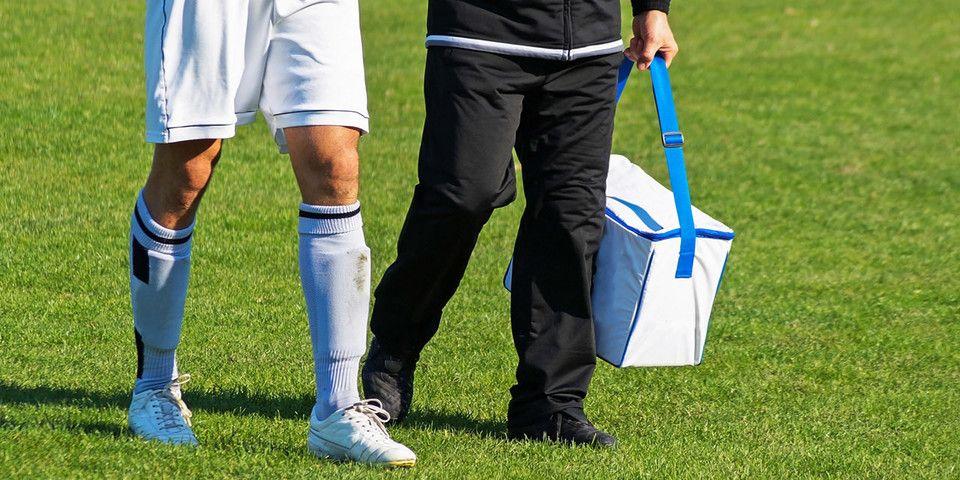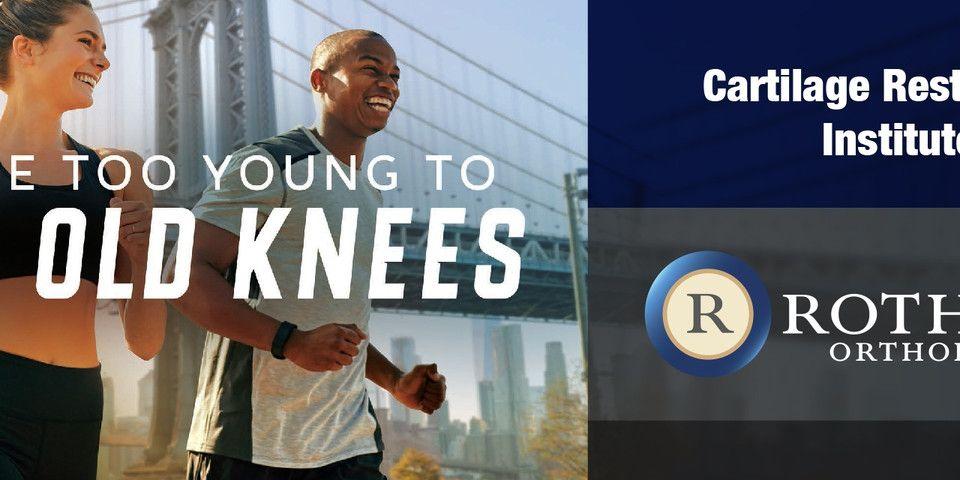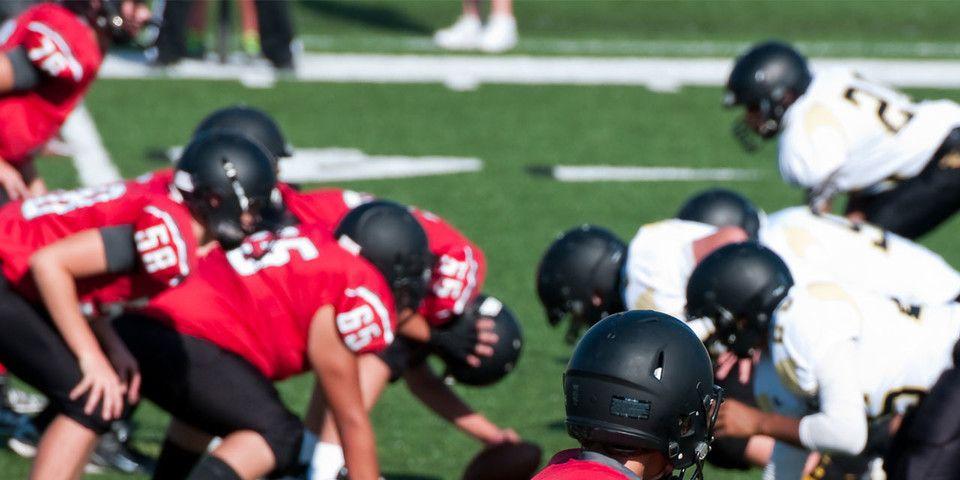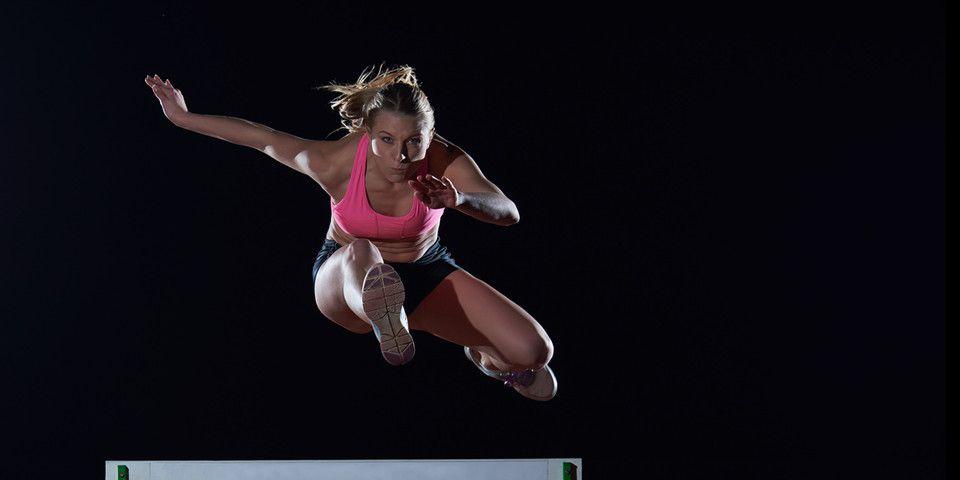Answers at Your Fingertips: Treatment for an ACL Injury Playing Volleyball
ACL injuries are common, and so are their treatment options - learn more about your ACL injury today.
Anterior cruciate ligament (ACL) injuries are relatively common in sports that involve a significant amount of sudden stop-and-go movement, such as soccer, basketball, and volleyball. Regardless of it being a non-contact sport, volleyball is amongst the most injury-prone sports, especially for young adult athletes.
If you or a loved one has suffered an ACL injury playing volleyball or beach volleyball, chances are you’re in search of treatment and may be wondering where to start. Each year, Rothman Orthopaedic Institute’s Sports Medicine team sees more than 80,000 sports-related injuries and performs more than 10,000 surgeries.
When injured, an ACL should be examined as soon as possible
How do Players Suffer an ACL Injury Playing Volleyball?
The Anterior Cruciate Ligament, one of four main ligaments that stabilize the knee, crosses in front of the Posterior Cruciate Ligament (PCL) and does three main jobs for the knee joint:
-
Controls front-to-back knee movement
-
Keeps the tibia (shin bone) in place
-
Stabilizes the knee for rotational movement
When played on sand, volleyball poses a number of threats to players’ balance and stability. Sudden planting and pivoting movements, already dangerous enough on their own, can be made significantly more harmful by the unstable surface of a beach court.
The ACL can easily be damaged as a result of sudden direct trauma but is more commonly compromised due to players suddenly changing direction and not having enough stability in the knee joint. ACL injuries are classified as sprains, and when ligaments are injured they are rated on a scale of severity: Grade 1, Grade 2, and Grade 3 sprains.
-
Grade 1 sprains: mildly damaged ligaments, usually just stretched slightly while still able to provide stability to the knee.
-
Grade 2 sprains: feel significantly weaker and are marked by the ligament being stretched to the point of loosening. Also referred to as a “partial tear.”
-
Grade 3 sprains: the most common form of an ACL tear, occur when the ligament tears apart completely and is unable to properly stabilize the knee joint. Also referred to as a “complete tear”.
ACL injuries are usually marked by a number of recognizable symptoms. Many report hearing a sudden “popping” noise, along with immediate pain and gradual swelling of the knee joint. There are a few options for treating an ACL injury, and surgery is never the only course.
Treating a Torn ACL
Suffering an ACL injury playing volleyball is a common occurrence. More than 200,000 ACL injuries are treated each year, and Rothman Orthopaedic Institute is a leader in providing quality orthopedic care for those in need of treatment for ACL injuries.
If appropriate your Rothman Orthopaedic Institute physician will initially recommend a course of nonsurgical treatment, involving rest, bracing, and physical therapy.
If your injury is severe enough, such as a complete tear of the ligament which will be unable to heal on its own, your physician may recommend surgery.
Surgery is never an easy thing to choose, and we understand that. The good news is that with nearly half of all ACL injuries requiring surgical treatment, we are equipped and capable of providing you with the treatment you need, no matter what.
Orthopaedic Care from Top Minds in Sports Medicine
Rothman Orthopaedic Institute’s knowledgeable and compassionate physicians are here to provide you with all the care and support you need. If you would like more information on how to treat or prevent an ACL injury playing volleyball or would like to arrange for an evaluation, visit us here or contact us at 1-800-321-9999.
Related Specialties
Related Physicians
- All Specialties
- Hip
- Knee
- Spine
- Sports Medicine
- Shoulder & Elbow
- Foot & Ankle
- Hand & Wrist
- Physical Medicine & Rehabilitation
- Orthopaedic Oncology
- Orthopaedic Trauma & Fracture Care
- General Orthopaedics
Physician Language
- All Languages
- Spanish
- English
- Persian
- Arabic
- Italian
- Swedish
- Chinese
- German
- Hindi
- Gujarati
- Tamil
- Korean
- Turkish
- Mandarin
- Taiwanese
- Telugu
- Punjabi
Filter Physicians
Search
Specialties
- All Specialties
- Hip
- Knee
- Spine
- Sports Medicine
- Shoulder & Elbow
- Foot & Ankle
- Hand & Wrist
- Physical Medicine & Rehabilitation
- Orthopaedic Oncology
- Orthopaedic Trauma & Fracture Care
- General Orthopaedics
Physician Language
- All Languages
- Spanish
- English
- Persian
- Arabic
- Italian
- Swedish
- Chinese
- German
- Hindi
- Gujarati
- Tamil
- Korean
- Turkish
- Mandarin
- Taiwanese
- Telugu
- Punjabi
Please select your region to view available physicians.
Select Your Region- All Locations
- {{item.title}} {{distanceText(item)}}
Sort
Related Conditions
Related Treatments
Related Services
Related Programs
-

Athletic Training- Sport Medicine Outreach
Our Field Athletic Trainers provide direct sports medicine care to youth, high school, college and professional athletes. Rothman AT’s provide athletic training services throughout Southeastern PA and NJ to interscholastic high schools, colleges, as well as tournaments and special events.Read More -

Cartilage Restoration Institute
This is a center where patients can go to have their disabled joint biological resurfaced, realigned, and stabilized without having the joint replaced by artificial materials such as metal and plastic. It is well known that the outcomes of patients under the age of 50 undergoing artificial joint replacement are not as good as we would like. Therefore we feel the future of Orthopaedics is to try to restore a joint back to its original anatomy by realignment, ligament reconstruction, and cartilage restoration.Read More -

Injury Prevention Program
The Injury Prevention Program at the Rothman Orthopaedic Institute is dedicated to the prevention of injuries from athletic participation, particularly youth sports.Read More -

Women’s Sports Medicine Program
The Women’s Sports Medicine Program at the Rothman Orthopaedic Institute is the first of its kind in the Philadelphia metro area and one of only several such programs specializing in the comprehensive care of the female athlete in the country.Read More





